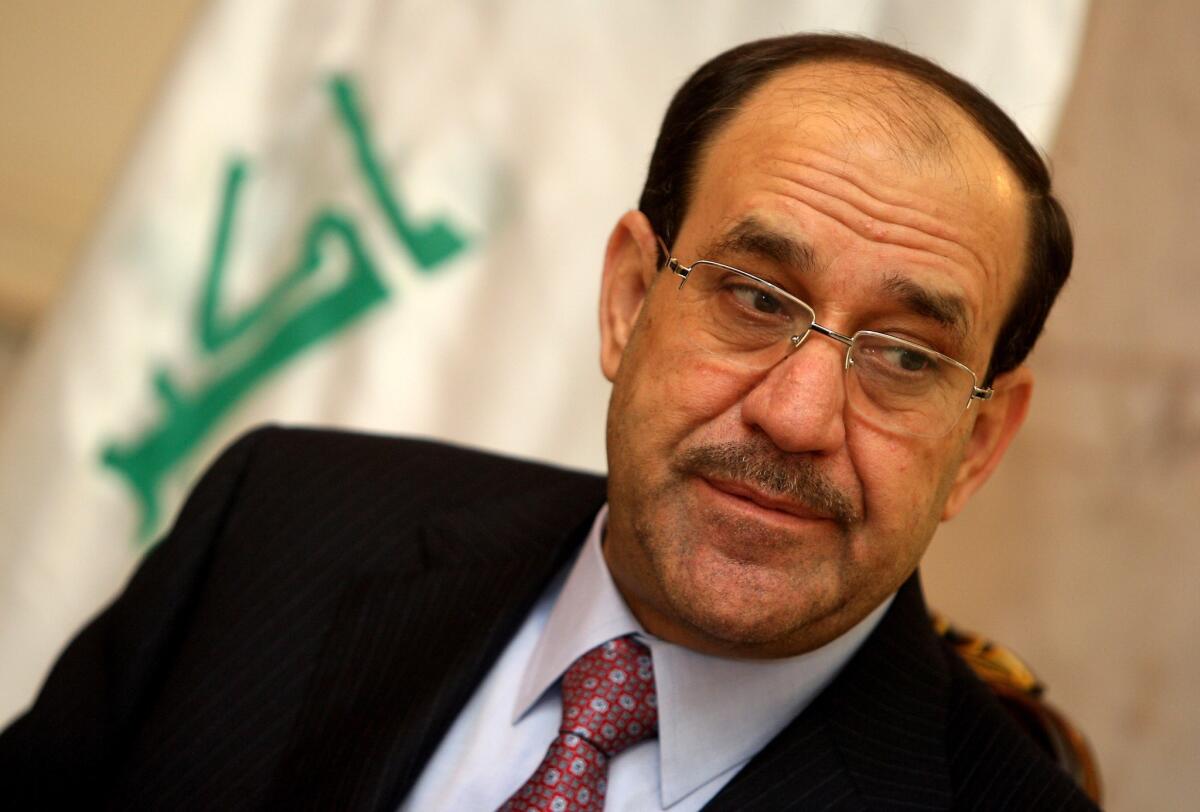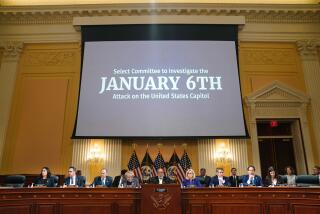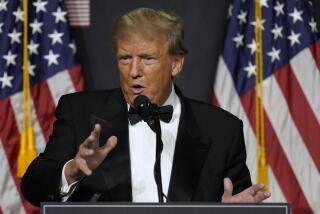Former Iraqi leader Nouri Maliki could face charges over Mosul’s fall

Former Iraqi Prime Minister Nouri Maliki listens to a question during an interview in Baghdad on Feb. 5, 2011.
- Share via
Reporting from Cairo — Who lost Mosul? The question could lead to Iraq’s former prime minister and many top lieutenants facing criminal charges.
Iraqi lawmakers on Monday referred to the public prosecutor a report calling for former Prime Minister Nouri Maliki and other senior civilian and military officials to be held to account for the fall of Iraq’s second-largest city to the militants of Islamic State last summer.
That could ultimately result in trials for dozens of civilian officials, or to courts-martial in the case of military leaders.
The fall of Mosul was a humiliating blow to Iraq’s military, and the biggest triumph yet for Islamic State. The group made that victory the centerpiece of its claim to a caliphate encompassing parts of Syria, Iraq and beyond, in which it has sought to impose its own harsh interpretation of Islam.
Two lawmakers told the Reuters news agency that members of parliament had approved the judicial referral by a voice vote on Monday, implicitly endorsing a panel’s damning report on last summer’s events.
The report blames Maliki for putting corrupt and inept commanders in place, saying that helped set the stage for the Iraqi security forces’ collapse in the face of an assault by a relatively small force of Islamic State fighters.
Also implicated by the parliamentary panel were Mosul’s governor, the former acting defense minister and the provincial police commander.
Mosul’s capture in June 2014 coincided with a systematic campaign of terror in territories seized by Islamic State.
Its rule has been marked by tactics including the sexual enslavement of girls and women from the minority Yazidi sect, the slaughter of religious minorities, mass public beheadings and other grisly killings, and the destruction of priceless antiquities.
Mosul’s fall exposed fatal weaknesses in the Iraqi military, which the United States had spent years building, training and equipping. Many critics blame sectarian infighting under Maliki for undermining national institutions and fostering a climate in which Islamic State could surge to power.
Iraq’s current prime minister, Haider Abadi, has carried out a Cabinet shakeup and other steps to try to bring about reforms, but public anger has been growing over corruption.
Some observers believe that the attack on Maliki may be a bid by Abadi to consolidate power. Last year, Abadi replaced Maliki as prime minister, relegating his predecessor to the largely ceremonial post of vice president.
But the former prime minister and Shiite hard-liner remains a political threat to Abadi. He is the secretary-general of Abadi’s Dawa party and also has strong backing among the Shiite militias in the country.
Looking forward to the next election cycle in Iraq, analyst Ramzy Mardini said Maliki’s removal from office alone would not have neutralized him.
“This was always going to be a two-step maneuver -- take away Maliki’s position first, then see he is not allowed to run for public office again,” Mardini said by email from the Jordanian capital, Amman.
Staff writer King reported from Cairo and special correspondent Bulos from Gaziantep, Turkey.
For news from the Middle East, follow @LauraKingLAT
More to Read
Sign up for Essential California
The most important California stories and recommendations in your inbox every morning.
You may occasionally receive promotional content from the Los Angeles Times.













